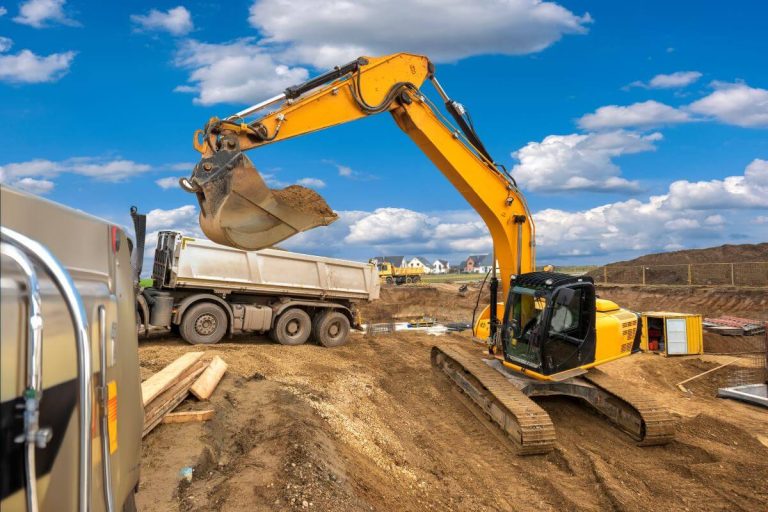Fuel costs are a significant burden for any construction company managing a fleet of trucks, and Milton, ON, is no exception. Every gallon saved translates directly to increased profits. In this article, we’ll explore key strategies to optimize your construction fleet’s fuel efficiency, helping you achieve substantial cost savings and improve your bottom line. We’ll cover on-the-road practices, preventative maintenance routines, and driver training techniques – all geared towards reducing fuel consumption across various construction project types, including waste handling, demolition, excavation, and utility work, common in Milton and the surrounding areas.
Fuel-Saving Strategies On The Road: Optimizing Efficiency On The Job Site
While construction projects don’t involve extensive highway travel, fuel efficiency remains a major concern for managing a fleet. Here are key strategies to implement on the job site and during travel between locations to maximize fuel savings:
- Minimize Idling: Construction sites often involve waiting periods for loaders, concrete pours, or equipment deliveries. Instruct drivers to shut off the engine whenever possible, even for short breaks. Utilize automatic shutoff features if available on your trucks. This simple practice can significantly reduce wasted fuel.
- Maintain Consistent Speeds: Frequent acceleration and deceleration are common when moving between tasks or hauling materials. Train drivers to maintain steady speeds whenever possible, especially when traveling between stockpiles, project phases, or waste disposal facilities. This optimizes fuel consumption and promotes safety.
- Optimize Route Planning: While on-site movement dominates fuel use, consider efficient routes for deliveries and pickups of materials like lumber, concrete, or steel to your Milton-based construction sites. Utilize route planning tools to avoid traffic congestion and unnecessary stops, especially when working on linear projects like pipelines or roads.
- Tire Pressure Management: Underinflated tires increase rolling resistance, leading to higher fuel consumption. Implement a regular tire pressure check and adjustment program according to the manufacturer’s recommendations. This ensures optimal fuel efficiency and tire lifespan, which is crucial for heavy equipment used in hauling and moving materials across the job site.
Optimizing Equipment Performance For Fuel Efficiency
Construction equipment often operates under strain, so keeping it in top condition is essential for both fuel efficiency and performance. Here’s a maintenance focus that goes beyond routine servicing:
- Fuel Filter and Air Filter Management: Implement a schedule for replacing fuel and air filters more frequently than standard recommendations, especially in dusty or harsh environments like demolition sites or during excavation projects. Clean air filters ensure proper engine air intake, leading to better combustion and improved fuel economy by up to 10%.
- Engine Monitoring: Utilize telematics systems or onboard diagnostics to monitor engine performance. Early detection of minor issues, such as faulty sensors or failing injectors, can prevent problems that could lead to increased fuel consumption and costly repairs down the road.
- Proper Ballast and Loading: Ensure equipment operates with the recommended ballast or weight for the specific task. Overloading a loader or excavator beyond its capacity puts undue strain on the engine and drivetrain, reducing fuel efficiency and increasing the risk of breakdowns. Under-ballasting can also be detrimental, affecting stability and requiring additional engine power to maneuver the equipment.
- Tire Selection and Maintenance: Choose tires designed for specific applications, such as off-road construction tires for dump trucks or loaders hauling heavy materials across rough terrain. Maintain proper inflation pressures according to the manufacturer’s recommendations. Monitor for uneven wear, which can be a sign of alignment problems that decrease fuel efficiency and lead to premature tire replacement.
By implementing these strategies, construction companies can significantly reduce fuel costs associated with their fleet operations. Remember, a well-maintained fleet with fuel-conscious drivers is key to long-term success in the construction industry.
Next Steps: Consulting Local Professionals
Consider consulting with a local Milton fleet management specialist or a reputable fuel supplier to develop a customized plan for your specific needs. They will understand the specific challenges of operating construction equipment in the region.
Contact Brown’s Fuels today for a free consultation. Our fleet management specialists will assess your specific needs and develop a customized plan to optimize your fuel efficiency. We offer a wide range of services to help you achieve your goals, including on-site refueling, bulk fuel delivery, and industry-leading fuel management tools. Let Brown’s Fuels be your guide in reducing costs and keeping your construction projects on track.

